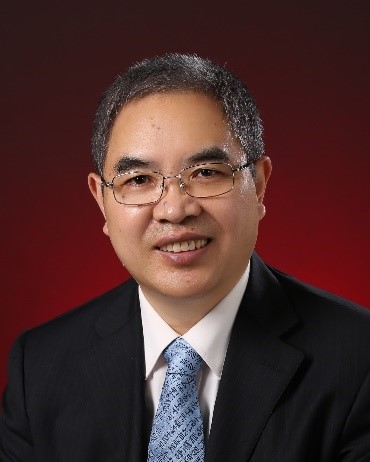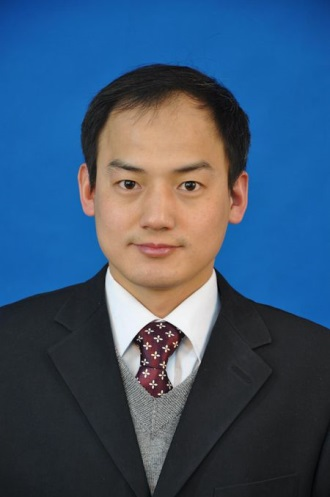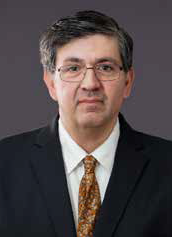
| Prof. Pingyi FanTsinghua University, ChinaDr. Pingyi Fan is a professor and the director of open source data recognition innovation center, Department of Electronic Engineering, Tsinghua University. He is member (Academician) of the united states national academy of artificial intelligence (NAAI) and Fellow of IET and IET Fellowship international Assessor. He received Ph.D. degree at the Department of Electronic Engineering of Tsinghua University in 1994. From 1997 to 1999, he visited the Hong Kong University of Science and Technology and the University of Delaware in the United States. He also visited many universities and research institutes in the United States, Europe, Japan, Hong Kong and Singapore. He has obtained many research grants, including national 973 Project, 863 Project, mobile special project and the key R&D program, national natural funds and international cooperation projects. He has published more than 600 papers (ORCID) including 171 IEEE journals and more than 10 ESI highly cited papers as well as 4 academic books. He also applied for more than 40 national invention patents, 7 international patents. He won 10 best paper awards of IEEE international conferences, including IEEE ICCCS2023 and 2024, ICC2020 and Globecom 2014, and received the best paper award of IEEE TAOS Technical Committee in 2020, the excellent editor award of IEEE TWC (2009), the most popular scholar award 2023 of AEIC, the second natural Prize of CIC (2023) and several international innovation exhibition medals, i.e. Gold Medal at the Russian Invention Exhibition-2024, Silver Medal at Geneva Invention Exhibition-2023, and Silver Medal at Paris Invention Exhibition-2023 etc. and served as the editorial board member of several Journals, including IEEE and MDPI. He is currently an Associate Editor of IEEE Transactions on Cognitive Communications and Networking (TCCN), the editorial board member of Open Journal of Mathematical Sciences and IAES international journal of artificial intelligence, the deputy director of China Information Theory society, the Co-chair of China's 6G-ANA TG4, and the chairman of Network and Communication Technology Committee of IEEE ChinaSIP. His current research interests are in 6G wireless communication network and machine learning, semantic information theory and generalized information theory, big data processing theory, intelligent network and system detection, etc. Title:Towards Digital Twins--- Digital Image Compression Processing Abstract: The concepts of metaverse and digital twins have attracted more attentions, it gradually triggers some related techniques and/or system designs in engineering implementation while more and more publications are being presented. One important thing is that the images or videos may be the dominant part in the implementations of Metaverse and Digital Twins. In this talk, we mainly focus on the digital image lossless compression and present a new method- soft compression of digital images. We first introduce the key idea of it and then show some numerical results on several known databases of digital images. To further investigate its principles from information theory, we proved that soft compression can approach the exact entropy of images under mild conditions. We also investigated its robustness to the interferences in the image storages and in the image transmission, respectively. Finally, we point out the research directions related in the future. |
| Prof. Mouquan ShenNanjing Tech University, China Professor, the "Six Talent Peaks" of Jiangsu Province. Postdoctoral at Southeast University, visiting scholar at overseas universities such as the University of Hong Kong, Yeungnam University, South Korea, and the University of Adelaide, Australia. He is the PI of more than 10 provincial-level projects, including the National Natural Science Foundation of China, the National Bureau of Foreign Experts Affairs, and the Jiangsu Provincial Natural Science Foundation. In recent years, more than 100 papers with an H-index of 24 have been published in journals such as IEEE Transactions on · Automatic Control, IEEE Transactions on Cybernetics, and IEEE Transactions on Systems, Man, and Cybernetics: Systems. He has been appointed Editor-in-Cheif, Associate Editor, or Editorial Board Member of 12 international journals. He is also an active reviewer of over 80 domestic and international journals, including IEEE, TAC, and Automatica, as well as the corresponding reviewer for the National Natural Science Foundation of China and multiple provincial and municipal science and technology projects. Title:Data-based control theory and methods Abstract: This presentation focuses on data-based control theory and methods. Based on the modified index, two optimal data-driven control laws are provided by employing adaptive dynamic programming method and Q-learning algorithm, respectively. Two novel event-triggered mechanisms are constructed by utilizing instantaneous and averaged data as well as performance cost, respectively. Sufficient conditions are developed to ensure the ultimately uniform boundedness of the resultant systems. Finally, some examples are presented to verify the effectiveness of the proposed schemes. |
| Prof. Carlos Artemio Coello CoelloDepartment of Computer Science CINVESTAV-IPN, Mexic IEEE Fellow, Editor-in-Chief, IEEE Transactions on Evolutionary Computation Professor Carlos Artemio Coello Coello received a PhD in Computer Science from Tulane University (USA) in 1996. He is currently full professor with distinction at CINVESTAV-IPN in Mexico City, Mexico. He has published over 380 papers in international peer-reviewed journals,book chapters, and conferences. He has also co-authored the book Evolutionary Algorithms for Solving Multi-Objective Problems, which is now in its Second Edition (Springer, 2007) and has co-edited the book Applications of Multi-Objective Evolutionary Algorithms (World Scientific, 2004). Hispublications currently report over 23,000 citations, according to Google Scholar (his h-index is 61). He received the 2007 National Research Award (granted by the Mexican Academy of Science) in the area of exact sciences and, since January 2011, he is an IEEE Fellow for "contributions to multi-objective optimization and constraint-handling techniques." He is also the recipient of the prestigious 2013 IEEE Kiyo Tomiyasu Award and of the 2012 National Medal of Science and Arts in the area of Physical, Mathematical and Natural Sciences (this is the highest award that a scientist can receive in Mexico). He also serves as associate editor of the journals Evolutionary Computation, IEEE Transactions on Evolutionary Computation, Computational Optimization and Applications and Applied Soft Computing. Title:Evolutionary Multi-Objective Optimization and The Quest for Reproducibility Abstract:In this talk, we will cover the basics of evolutionary multi-objective optimization from a historical perspective, with a particular emphasis on the development of algorithms. As part of this overview, the key role played by the availability of the source code of multi-objective evolutionary algorithms will be discussed. Additionally, a brief review of the way in which the methodology for validating multi-objective evolutionary algorithms has varied along the years will be provided. |


